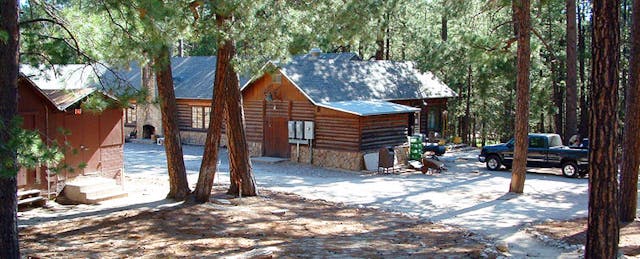Summer’s coming and for kids across the U.S., that means one thing: camp. And nothing beats the summer brain drain than learning to build things. No, not Popsicle stick houses and lanyards--we’re talking code. Although they’ve been around since the late 70’s, computer camps are seeing a surge of interest as kids get to build things they can actually enjoy, like robots, games, and iOS apps.
Below are some of the most popular programming camps for kids around the world. For a more comprehensive list, Code.org has compiled a searchable database of classes near you. Of course, if there are others that you think we left out, let us know in the comments below!
Around the World
iD Tech Camps: True to many Silicon Valley startup origins, iD Tech Camp started in 1999 in a studio above the family garage. Now, it offers week-long and weekend summer programs at over 60 universities in the States. These camps offer intensive computer programming classes based around different interests, including game development, web design, robotics engineering, and film and photography. Classes guarantee no more than eight students per instructor. Tuition varies but typically runs on the steep side at upwards of $1,000 per week. The operating company, internalDrive, is generating healthy revenues and looking at further program expansion.
KidsCodeCamp: Founded in 2012 by The Hybrid Group, KidsCodeCamp works with local companies and volunteer professionals to organize one-day, non-profit events to give kids their first taste of computer programming, free of charge. (Unsurprisingly, these events sell out well ahead of time.) Local volunteers run classes intended for specific age groups, and introduce kids to tools like KidsRuby, Scratch, Ruby4kids and Raspberry Pis.
Digital Media Academy offers summer camps for teens and kids at college campuses throughout the U.S. and Canada that cover a broad range of digital media technologies, including 3D animation, music, and robotics. Of course, the argument can be made that anything digital involves coding in one form or the other. Specific programming classes for kids (ages 6-12) focus on Alice and Java; those for teens (ages 12-17) cover advanced Java and Python around gaming and app development projects. Classes range from one to two weeks and cost from $865 to nearly $2,000.
CoderDojo: Non-profit founded in Ireland 2011 to organize free coding “Dojos” around the world, from Argentina to Uganda. The CoderDojo community is loosely organized in the sense that any local volunteers can start a Dojo and organize activities and programs that teach kids to code. Dojos typically meet weekly or monthly, and strongly encourages the usage of open source and free tools. Each year mentors and anyone interested in starting a Dojo are invited to a yearly conference, DojoCon.
In Your Backyard
Code in the Schools is a Baltimore-based non-profit program that partners with local schools to provide after-school programming classes. It is currently incubated at the Digital Harbor Foundation, which provides support, training and incubation for education projects and initiatives in Greater Baltimore region.
Classroom Antics offers day and week-long camps for LEGO robotics, video game design, programming, and animation camps throughout Ohio, particularly in Cincinnati, Columbus, and Cleveland. Housed at local churches, banquet halls, and community centers, the three-hour classes typically Registration runs around $200 for a week-long class.
ProjectFun, from game development school, Digipen Institute, offers summer programs through that teach K-12 students programming, design, and animation skills related to games and multimedia. Based in Redmond, WA, the two-week programs for middle- and high-schoolers run $1195, while the one-week program for elementary students costs $600.
CodeNow, a DC-based nonprofit founded in 2011, offers free programs in DC and New York to help high school students pick up programming skills. The program curriculum consists of three parts: First, up to 20 students attend a weekend training that includes learning about Hackety Hack and LEGO Mindstorms. Afterwards, they are assigned online projects and, upon completion, will qualify to attend a bootcamp that focuses on learning to program in Ruby. Students who make it all the way through--a number that stood at 53 at last count--get a Netbook. (Nearly 40% of its students are girls.) CodeNow is reportedly seeking to expand its program to San Francisco.
Girl's Club
Girls Who Code is a non-profit dedicated to creating more opportunities to introduce high school girls to computer science. Founded by the former Deputy Public Advocate in New York City, the organization has some serious backers and funders (think Google, Twitter, Intel) that foot the bill to offer free, intensive summer immersion programs in New York, Detroit, San Francisco, and San Jose. (By intense, we mean eight-weeks, Monday to Friday, 9 to 5.) The program covers programming fundamentals, mobile development, robotic, and web development and design. The program has 160 openings this year, up from the 20 when it first started in 2012. The NYTimes reports that Girls Who Code will also be packaging and sharing its curriculum to schools and other organizations.
Black Girls CODE focuses on introducing programming and technology to girls of color. The SF-based non-profit, founded by former Genentech project manager, Kimberly Bryant, organizes workshops around the country where girls, from ages 7 to 17, work in teams to build games, webpages, and robots with programming languages like Alice and Scratch. (It also recently hosted one in Johannesburg in South Africa.) Workshops typically costs $25. According to Upstart, Black Girls CODE will reach up to 2,000 girls in 2013. The name may have to change too, as it also reported that Bryant will expand the program to boys as well.


